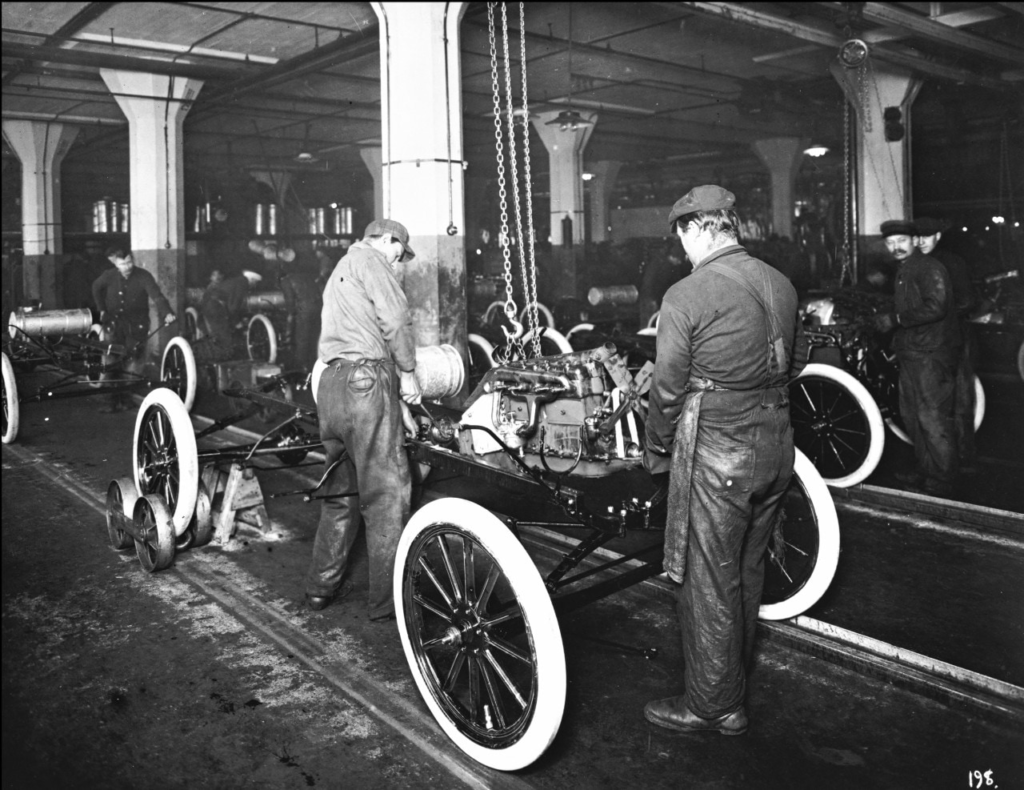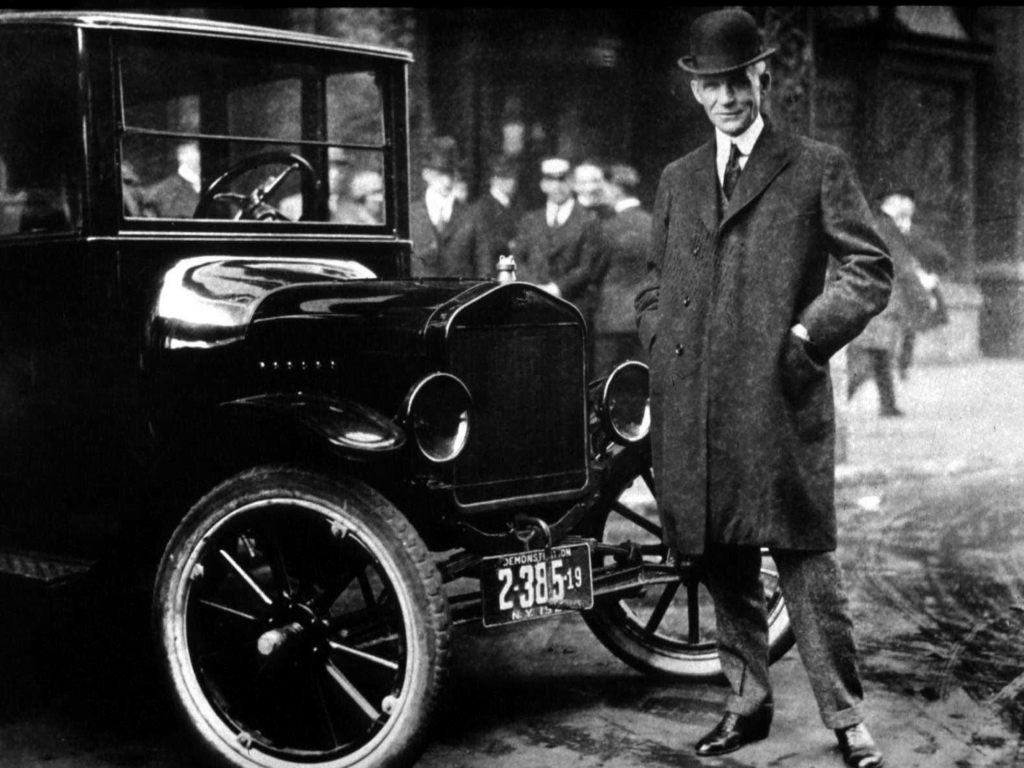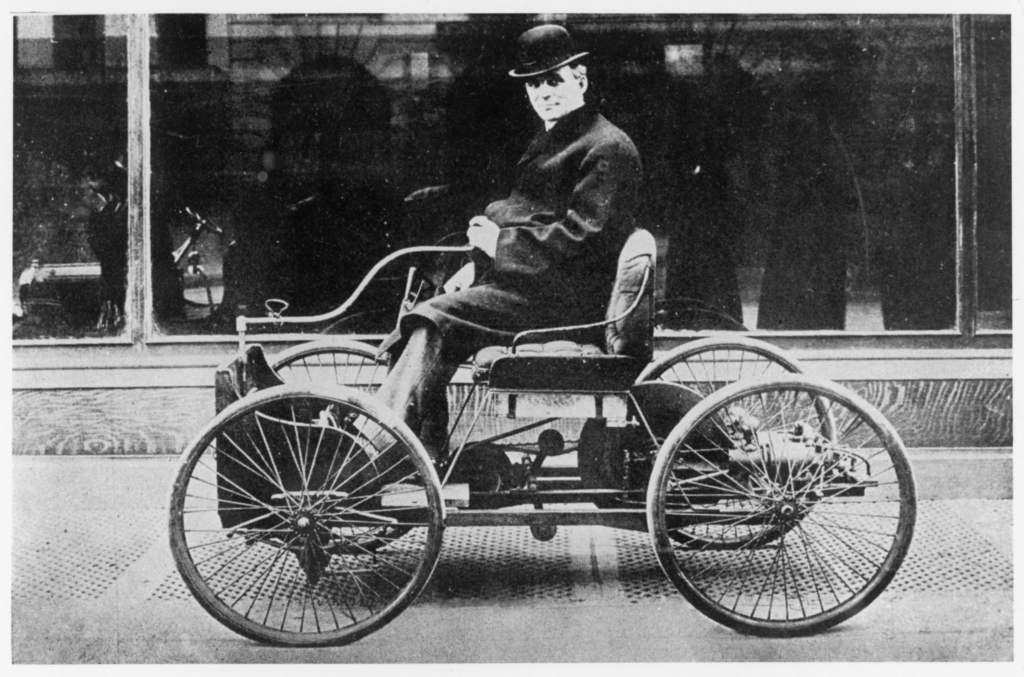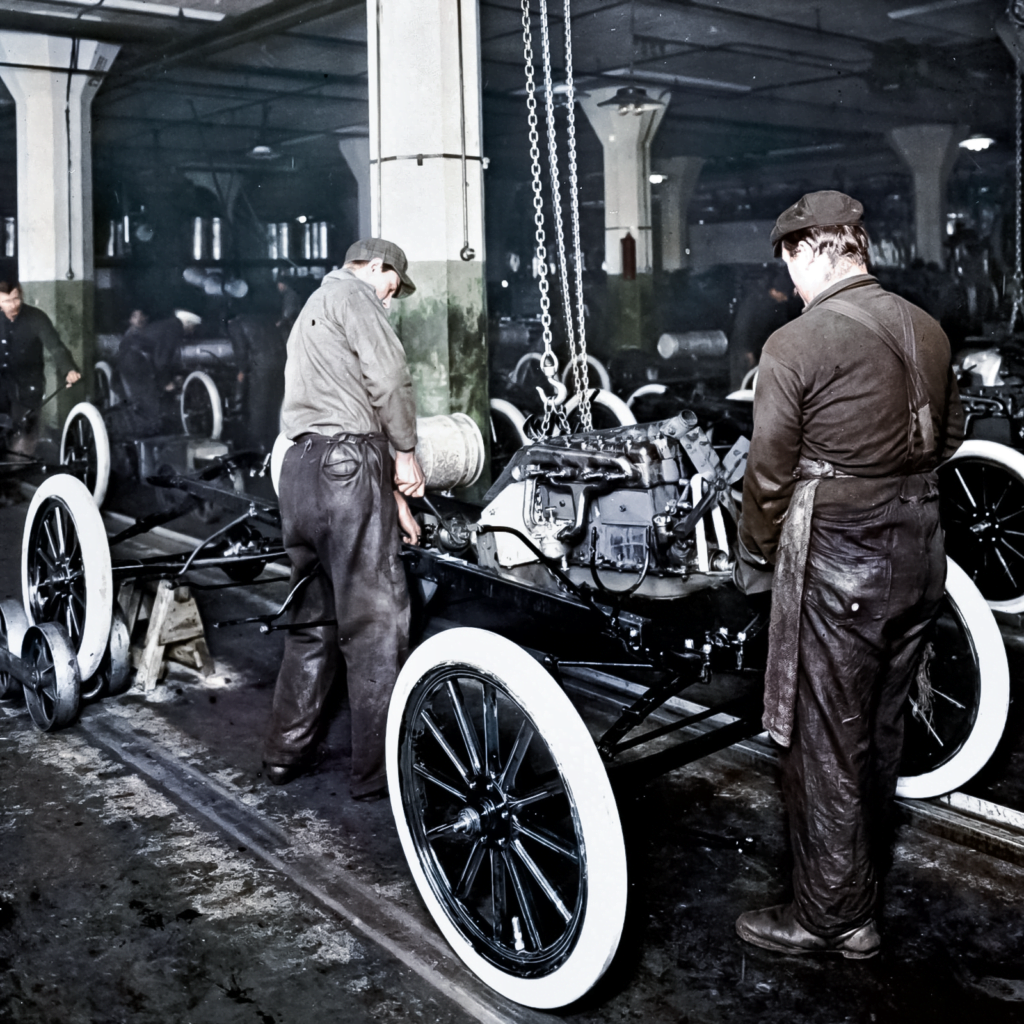We, at Ford Bangladesh, take great pride in being a part of the global automotive industry and witnessing Ford’s significant impact on shaping it worldwide.
From its humble beginnings to becoming a leading automobile manufacturer, Ford has left an indelible mark on the industry.
Through innovation and revolutionizing the production process, Ford has made cars more affordable and accessible to the masses.
Join us as we delve into Ford’s remarkable journey and explore its continued influence on the future of transportation.
The Birth of Ford Motor Company

Founded in 1903 by Henry Ford, the birth of Ford Motor Company marked a turning point in the history of automobiles. Ford’s production methods, particularly the introduction of the assembly line, revolutionized the way cars were manufactured. This innovation allowed for faster and more efficient production, leading to increased affordability and accessibility of automobiles.
Ford’s impact on the global market was immense, as the assembly line allowed for mass production on a scale never seen before. This not only revolutionized the automobile industry, but also had far-reaching effects on other industries and economies around the world.
Ford’s commitment to innovation extended beyond production methods, as they continuously introduced new technologies and advancements in automotive technology. Their relentless pursuit of progress led to the modernization of the automobile industry as a whole, shaping the way we travel and live today.
The Assembly Line Revolution

One of the most significant contributions Ford made to the automobile industry worldwide was the introduction of the assembly line revolution. This revolution brought about several key benefits, including efficiency improvements, labor management, cost reduction, increased production rates, and standardization benefits.
By implementing the assembly line, Ford was able to streamline the manufacturing process, allowing for the production of cars to be done more quickly and efficiently. This led to significant cost reductions, as the assembly line allowed for economies of scale and reduced labor costs.
Additionally, the assembly line enabled Ford to increase production rates, meeting the growing demand for automobiles. Moreover, the standardization benefits of the assembly line ensured that each car produced was of consistent quality, further solidifying Ford’s reputation as a leader in the industry.
The Introduction of the Model T

Continuing our exploration of Ford’s role in shaping the automobile industry worldwide, the introduction of the Model T marked a pivotal moment in automotive history.
The Model T had a profound impact on the industry, revolutionizing the way cars were produced and consumed. Ford’s innovative production process, known as the assembly line, allowed for the mass production of the Model T, making it more affordable and accessible to the average consumer.
This affordability, combined with its durability and reliability, propelled the Model T to become a popular choice for transportation. The Model T’s influence on transportation extended beyond its time, leaving a lasting legacy that can still be seen today. Its introduction forever changed the landscape of the automobile industry, making cars more accessible and transforming the way people move from one place to another.
Ford’s Impact on Mass Production

As we delve into Ford’s impact on mass production, we witness the transformation of the automobile industry through their pioneering use of the assembly line. Ford’s implementation of the assembly line revolutionized the manufacturing process by increasing efficiency gains, reducing costs, and standardizing production.
By breaking down the manufacturing process into smaller, specialized tasks, Ford was able to streamline production and dramatically increase the speed at which cars were built. This not only resulted in significant cost reduction but also had a profound impact on the labor force. Skilled labor was no longer required for every step of the production process, allowing for the employment of less skilled workers and the expansion of the labor force.
Furthermore, the increased production capacity made it possible for Ford to expand its market reach, making automobiles more accessible to the general public.
Ford’s Influence on Global Car Ownership

Ford’s implementation of the assembly line not only revolutionized the manufacturing process, but it also had a significant influence on global car ownership.
By introducing mass production techniques, Ford was able to lower the cost of automobiles, making them more affordable and accessible to a wider range of people. This led to a surge in global car ownership, as more individuals were able to purchase their own vehicles.
Ford’s influence on global car ownership can be seen in the automotive industry’s impact on economies worldwide. The increased demand for cars created jobs in manufacturing, sales, and service sectors, stimulating economic growth.
Furthermore, the widespread ownership of cars has transformed transportation systems, allowing for greater mobility and connectivity between cities and regions.
Ford’s role in shaping the automobile industry has left a lasting legacy in terms of global car ownership and its impact on society.
Ford’s Contribution to Automotive Innovation

While Ford’s assembly line revolutionized the manufacturing process and global car ownership, it also made significant contributions to automotive innovation.
Ford has been at the forefront of technological advancements in the industry, constantly pushing the boundaries of what’s possible. From introducing advanced features like Ford SYNC, which integrates voice-activated connectivity, to developing sustainable automotive solutions such as electric and hybrid vehicles, Ford has been committed to reducing its environmental impact.
In terms of safety innovations, Ford has introduced numerous groundbreaking technologies, including the Ford Co-Pilot360, a suite of driver-assist technologies designed to enhance safety on the road.
Additionally, Ford has focused on enhancing the customer experience through innovative features like FordPass, an app that allows customers to remotely access and control their vehicles.
Ford has also fostered collaborations and partnerships with other companies, such as its alliance with Rivian to develop new electric vehicles.
Through these efforts, Ford continues to drive automotive innovation forward, shaping the industry for the better.
Ford’s Legacy in the Modern Automobile Industry

With its rich history and ongoing contributions, Ford continues to leave a lasting legacy in the modern automobile industry.
Ford’s leadership in the industry is evident through its innovative manufacturing techniques, global reach, and effective marketing strategies.
Ford’s manufacturing techniques have revolutionized the industry, introducing assembly-line production that increased efficiency and reduced costs. This approach allowed Ford to produce vehicles at a faster rate, making them more affordable for the general public.
In terms of global reach, Ford has established a strong presence in markets around the world, making it one of the most recognizable and trusted automotive brands.
Ford’s marketing strategies have also played a significant role in its success, utilizing effective advertising campaigns to create brand awareness and generate customer loyalty.
Furthermore, Ford’s impact on industry standards is undeniable, with its commitment to safety, quality, and environmental sustainability setting benchmarks for other manufacturers to follow.
Frequently Asked Questions
How Did Ford’s Early Experiences in the Automotive Industry Lead to the Birth of Ford Motor Company?
We learned how Ford’s early experiences in the automotive industry led to the birth of Ford Motor Company. The assembly line revolution and the Model T revolution had a significant impact on mass production.
What Were Some Key Factors That Contributed to the Success of Ford’s Assembly Line Revolution?
Key factors that contributed to the success of Ford’s assembly line revolution include increased efficiency, mass production, and lower costs. These innovations revolutionized the automobile industry and solidified Ford’s role in shaping it worldwide.
How Did the Introduction of the Model T Revolutionize the Automobile Industry?
The introduction of the Model T had a revolutionary impact on the automotive industry. Its significance lies in Ford’s innovation, which transformed the industry and sparked a global automobile revolution.
What Specific Ways Did Ford’s Impact on Mass Production Shape the Automotive Industry Worldwide?
Ford’s impact on mass production shaped the automotive industry worldwide in numerous ways. It revolutionized efficiency, standardized manufacturing processes, increased economic accessibility, established a global manufacturing network, and greatly influenced the modern supply chain.
Can You Provide Examples of Ford’s Influence on Global Car Ownership and How It Changed the Way People Viewed Automobiles?
Ford’s influence on car ownership and changing perceptions had a global impact. Through their innovative mass production methods, Ford revolutionized the automotive industry and shifted perspectives on automobiles worldwide.
Conclusion

In conclusion, Ford Motor Company has played a pivotal role in shaping the automobile industry worldwide.
From its inception, Ford has been a pioneer in innovation, introducing game-changing concepts such as the assembly line and the Model T. These groundbreaking advancements revolutionized the production process, making cars more affordable and accessible to the masses.
Ford’s commitment to sustainability and corporate social responsibility has also set new standards for the industry, leaving a lasting impact on the future of transportation.

Etcetera











